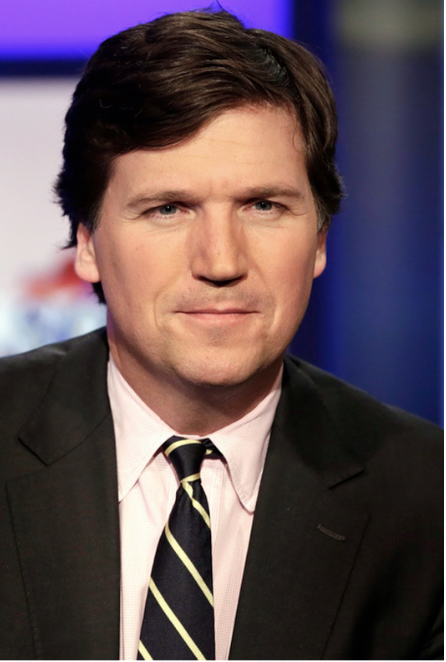
In a country plagued by insurance premiums, denied medical claims, and a fundamentally flawed healthcare system, it is easy to understand why many Americans are upset at the state of our medicare system. Luigi Mangione exemplified this anger when he murdered UnitedHealthcare CEO Brian Thompson on December 4, 2024, motivated by what the police believe had to do with an injury Mangione suffered. While some have argued that Mangione is a kind of modern-day vigilante, this framing is not only wrong – it is dangerous. Mangione is not a hero. At the base of this case, no matter how pure his intentions may have been, he murdered a man out of anger.
Mangione’s motivations were not pulled from thin air. The American healthcare system is deeply flawed. Millions of Americans cannot afford basic care, and pharmaceutical prices are exorbitant. Denied insurance claims result in extreme health declines; I could go on. UnitedHealthcare, as one of the largest health insurers in the country, is often at the center of these issues. It is necessary to raise awareness of these issues. But Mangione’s accused method – premeditated assassination – was not protest. It was cold-blooded murder.
The facts of this case are chilling: surveillance footage shows Mangione waiting outside the hotel where Thompson was scheduled to speak, he wore a mask, he carried a 3D-printed firearm fitted with a silencer, and more. When Thompson arrived, Mangione approached and shot him three times. He was arrested days later with the weapon still in possession, along with a manifesto speaking of the greed of the healthcare industry. Authorities allege that Mangione had been stalking Thompson for weeks. The pure facts being argued in this case are not the actions of a misguided activist. They are the actions of a man who decided the only way to be heard was through gunshot.
We often speak of how actions speak louder than words; I stand by that statement with all my being. That does not and cannot condone murder. Luigi Mangione may have raised awareness, but at what cost? Was there no other option? Luigi Mangione was an Ivy League-educated, privileged, white man from a wealthy Maryland family. Certainly there was a plethora of options for him to pursue. Instead, he chose violence. Mangione, being privileged, did not have to resort to violence. The uncomfortable truth is that Mangione’s act wasn’t born of desperation – it was born of choice. Unlike the countless Americans denied healthcare who live paycheck to paycheck, Mangione had resources. His abuse of privilege is masquerading as simple protest. But somehow, people are accepting that this is a permissible approach to the situation.
The moment this happened, edits appeared across my For You page, martyring Luigi Mangione. Everyone was obsessed with his good looks and the way he fought against the system. There is a certain allure to the lone avenger archetype: the individual who dares to take on corrupt systems when everyone else stays silent. But when that narrative leads us to excuse murder, we have crossed a moral line. Violence may produce headlines, but it does not produce justice. Real life isn’t a movie – we don’t solve healthcare by killing a CEO. Mangione was a coward; He ambushed an unarmed man. And it takes no great insight to understand that this one murder has not (and will not) fix the corrupt system.
Excusing murder, even in the name of a just cause, sets a terrifying precedent. It suggests that if your anger is justified enough, then the rules of society no longer apply to you. This opens the floodgates for individuals to commit acts of violence under the illusion of moral superiority. If we allow Mangione’s actions to be seen as understandable, or worse, admirable, we discard the very foundations of justice. Today it’s a DEO; tomorrow it could be a judge, a journalist, a teacher – anyone related to a system deemed broken by an angry person. Violence replaces protest, and democracy collapses into chaos. We cannot afford to blur the line between protest and premeditated murder, as many have done with Mangione. When we do, we don’t just condone one murder, we give permission for the next.
I love to play devil’s advocate, so I have thought about the responses to this article. One that continues to pester me is how I can say that violence is not justified when violence was necessary in, for example, the Civil War to abolish slavery. But I find it an insult to compare slavery to the injustices of the healthcare system. Perhaps that is radical for me to say, but if that is too radical, then I believe we have lost our moral compasses. I have scoured my brain and the internet for examples of violence to generate change that is more equivalent to Luigi Mangione’s case at hand. And I can think of nothing. Even the riots just years ago in Minnesota over the murder of George Floyd were harmful. We know that many businesses damaged by these riots were small businesses, owned by people of color and minorities. These riots brought about less change, in my eyes, than the peaceful protests. And again, comparing the unjust, racist murder by policemen to the injustices of the healthcare system is immoral and irrational.
Mangione has not even solved this issue. As I stated above, this murder might have led to headlines, but it has not led to any true change. Now, everyone is focused on his murder trial and the fact that Attorney General Pam Bondi is aiming for the death penalty – another important issue, but not the one Luigi Mangione wanted to raise attention for. Furthermore, his violence can derail years of progress. Activists and advocates working tirelessly to push for healthcare reform will now face more scrutiny and suspicion. Mangione didn’t effectively bring attention to this significant issue; Instead, he threatened it. He gave ammunition to those who want to paint these healthcare reformers as radicals and threats. In trying to punish the system, he handed it a perfect excuse to avoid reform. Violence is easy. Mangione’s murder was attention-grabbing and quick, but it has done nothing of substance. I pity the fool who believes anything has come of this action.
Mangione’s tragic act of violence cannot be justified, no matter the motivations. The healthcare system is undoubtedly broken, and there is a lot for us to fix, but murder is not an acceptable response. By excusing his actions as those of a hero, we dangerously set a precedent for violence as a method of change. True reform comes not from the barrel of a gun but from the advocacy work that many individuals and organizations work hard at. Mangione raised temporary awareness, but nothing will change. He derailed the very cause he sought to advance. The pursuit of justice cannot come at the cost of losing the principles that make us a just and honest society.




























